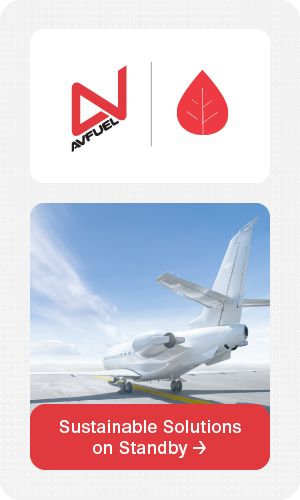
President’s Message
The lead problem has loomed over the GA industry for far too long.
In many of the communities that surround our general aviation airports, the topic of lead has become an increasingly emotional and divisive issue. Now, with a regulatory process put in motion by the Environmental Protection Agency (EPA) to issue an endangerment finding against leaded aviation fuel, time is running out for our industry to secure a lead-free future for piston aircraft and save general aviation airports from threats of closure.
A new, industry-wide initiative jointly spearheaded by government and industry seeks to remedy that threat by committing to a fleet-wide, lead-free alternative fuel by the year 2030. EAGLE, the Eliminate Aviation Gasoline Lead Emissions initiative, represents a wholistic approach to public/private partnership not yet seen in our previous efforts to identify a viable replacement for 100-octane low-lead fuel (100LL). By uniting the Federal Aviation Administration (FAA) with a broad swath of industry stakeholders behind a common goal, on an agreed-upon deadline, with adequate funding, and under expert leadership, EAGLE promises to deliver a lead-free solution for our industry.
Key to EAGLE’s success will be industry and Agency collaboration on four working groups organized around the initiative’s four pillars: Business (Fuel) Infrastructure and Implementation; Research, Development and Innovation; Unleaded Fuel Evaluation and Authorization; and Regulation, Policy, and Programmatic Activities. NATA leadership and staff are already involved in the formation of these working groups, and we thank our NATA members who have answered the recent call for industry participation. The working groups are open to all interested stakeholders, so we encourage airport and FBO members to consider serving. Together, we can safeguard our commitment to a single fuel and the continued use of existing infrastructure.
NATA’s leadership on the EAGLE initiative centers around the infrastructure and policy pillars, as we look to implement a 100 LL replacement in an efficient, safe, and economically viable manner. In particular, NATA will ensure that general aviation airports and aviation businesses are not burdened with new infrastructure requirements, since capital expenditures to support a stopgap fuel or multiple, non-drop-in fuels are both unreasonable and economically unfeasible. NATA will also continue to lead the industry in the safe adoption of emerging fuels, developing training modules within our Safety 1st Training Center to help prevent misfuellings and maintain safe ground handling practices throughout the process. Throughout the EAGLE process, NATA pledges to empower you and your business for safety and success.
In addition to understanding what EAGLE aims to accomplish, it is perhaps equally important for us all to understand what EAGLE will not do. Namely, EAGLE will not “pick a winner” from among the companies working to produce a 100LL alternative. Instead, we will unite behind any viable, drop-in fuel capable of serving the entire piston aircraft fleet. Whatever pathway that new fuel emerges from, we as an industry need to support all manner and means to safely and efficiently find a solution.
The lead problem has loomed over the GA industry for far too long. NATA is pleased to join with other aviation and government leaders who are committed to mapping a clear path forward to prevent this problem from detracting from the vital services and powerful economic growth our airports contribute to the communities they serve. As NATA moves forward in this vital work, please do not hesitate to reach out to me with your questions, concerns, or suggestions. I truly value your input.






